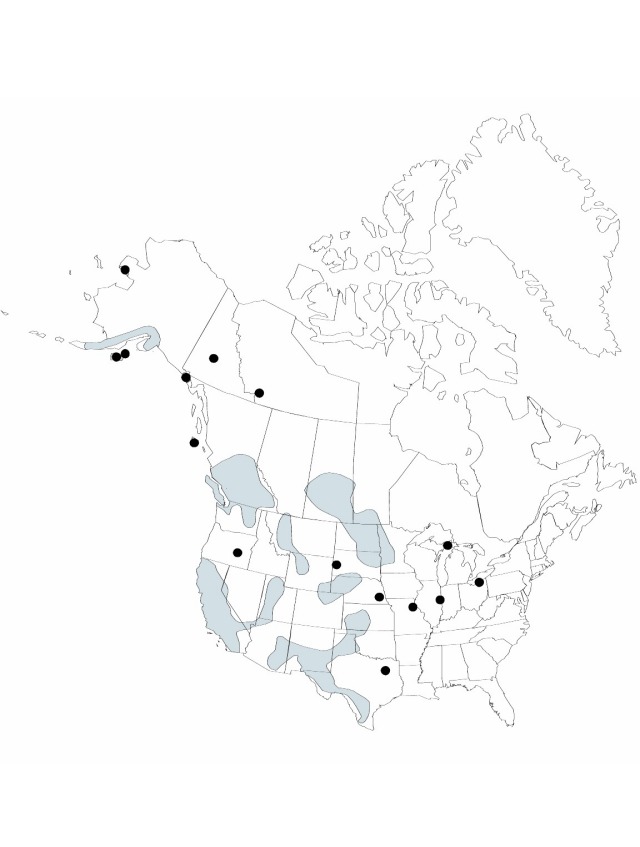Ruppia cirrhosa
Bull. Orto Bot. Regia Univ. Naapoli 5: 58. 1918.
Stems to 55 cm × 0.1–0.3 mm. Leaves 3.2–45.1 cm; blade 0.2–0.5 mm wide, apex acute. Inflorescences: peduncles with 5–30 coils, 30–300 × 0.5 mm. Flowers: pistils 4–6. Fruits 1.5–2 × 1.1–1.5 mm; gynophore 2–3.5 cm; beak lateral, erect, 0.5–1 mm. 2n = 40 (Europe).
Phenology: Flowering summer–fall.
Habitat: Shallow to deep fresh waters of lakes with high concentrations of sulfur or calcium
Elevation: 300–2500 m
Distribution

Alta., B.C., Man., N.W.T., Sask., Yukon, Alaska, Ariz., Calif., Colo., Ill., Kans., Mich., Minn., Mo., Mont., Nebr., Nev., N.Mex., N.Dak., Ohio, Okla., Oreg., S.Dak., Tex., Utah, Wash., Wyo., West Indies, Central America, South America, Europe
Discussion
Ruppia spiralis Linnaeus has occasionally been used for this taxon in North America. Linnaeus, however, had never published that name (J. T. A. Verhoeven 1979). Ruppia cirrhosa is, indeed, the correct name for the taxon (J. C. Gamerro 1968).
An implication that the North American material with long, spiraling peduncles is different from the European material of Ruppia cirrhosa stems from the statement that R. occidentalis occurs in inland lakes (J. T. A. Verhoeven 1979). No differences between European R. cirrhosa and the North American material are listed, however. In fact, a comparison of the Verhoeven's descriptive discussions for of R. cirrhosa (Verhoeven 1979) with the North American material shows that the two are the same. The genus should be studied on a worldwide basis. Until further studies indicate otherwise, I am considering North American and European material to be conspecific.
Lower Taxa
"elongating" is not a number.